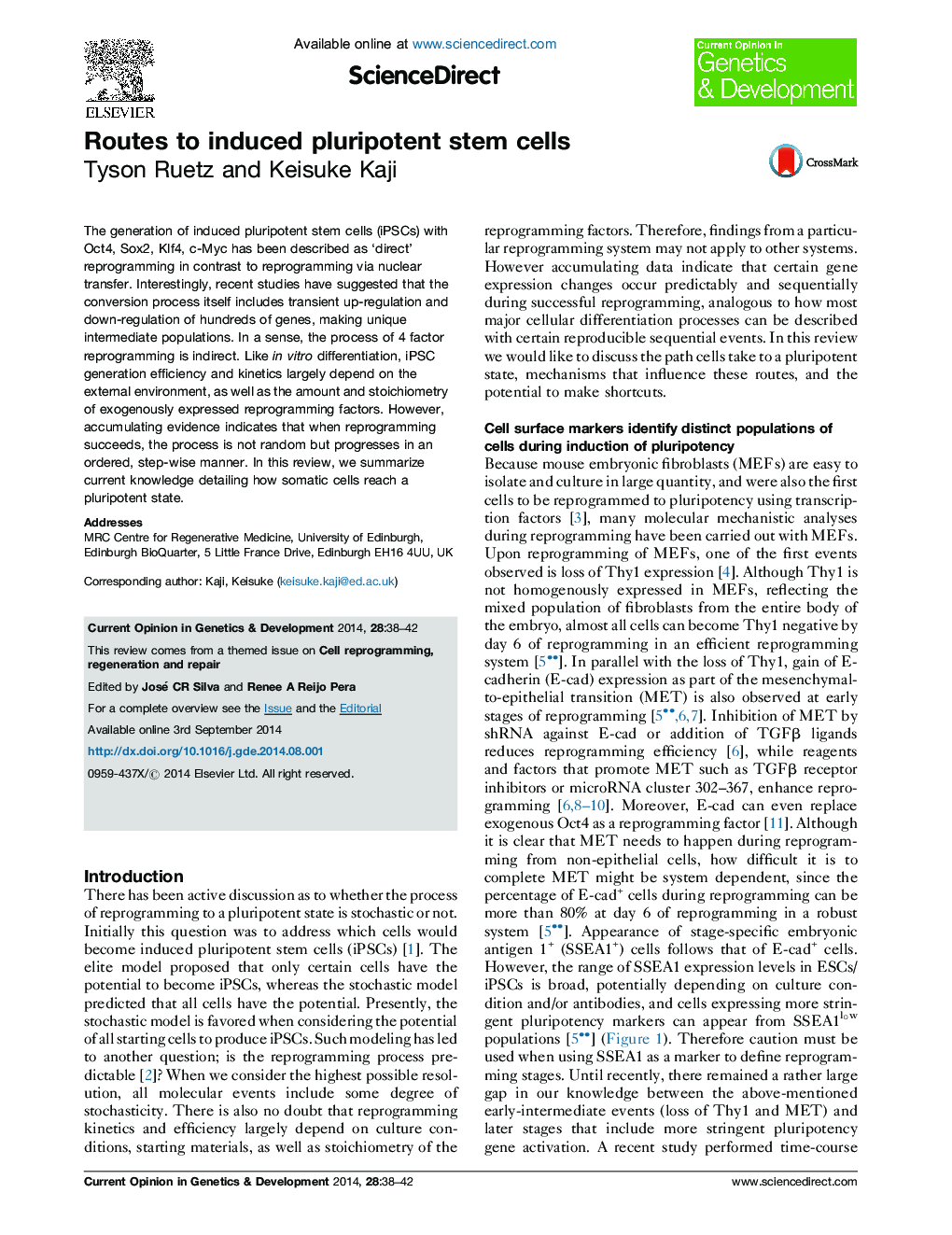| Article ID | Journal | Published Year | Pages | File Type |
|---|---|---|---|---|
| 5893300 | Current Opinion in Genetics & Development | 2014 | 5 Pages |
The generation of induced pluripotent stem cells (iPSCs) with Oct4, Sox2, Klf4, c-Myc has been described as 'direct' reprogramming in contrast to reprogramming via nuclear transfer. Interestingly, recent studies have suggested that the conversion process itself includes transient up-regulation and down-regulation of hundreds of genes, making unique intermediate populations. In a sense, the process of 4 factor reprogramming is indirect. Like in vitro differentiation, iPSC generation efficiency and kinetics largely depend on the external environment, as well as the amount and stoichiometry of exogenously expressed reprogramming factors. However, accumulating evidence indicates that when reprogramming succeeds, the process is not random but progresses in an ordered, step-wise manner. In this review, we summarize current knowledge detailing how somatic cells reach a pluripotent state.
